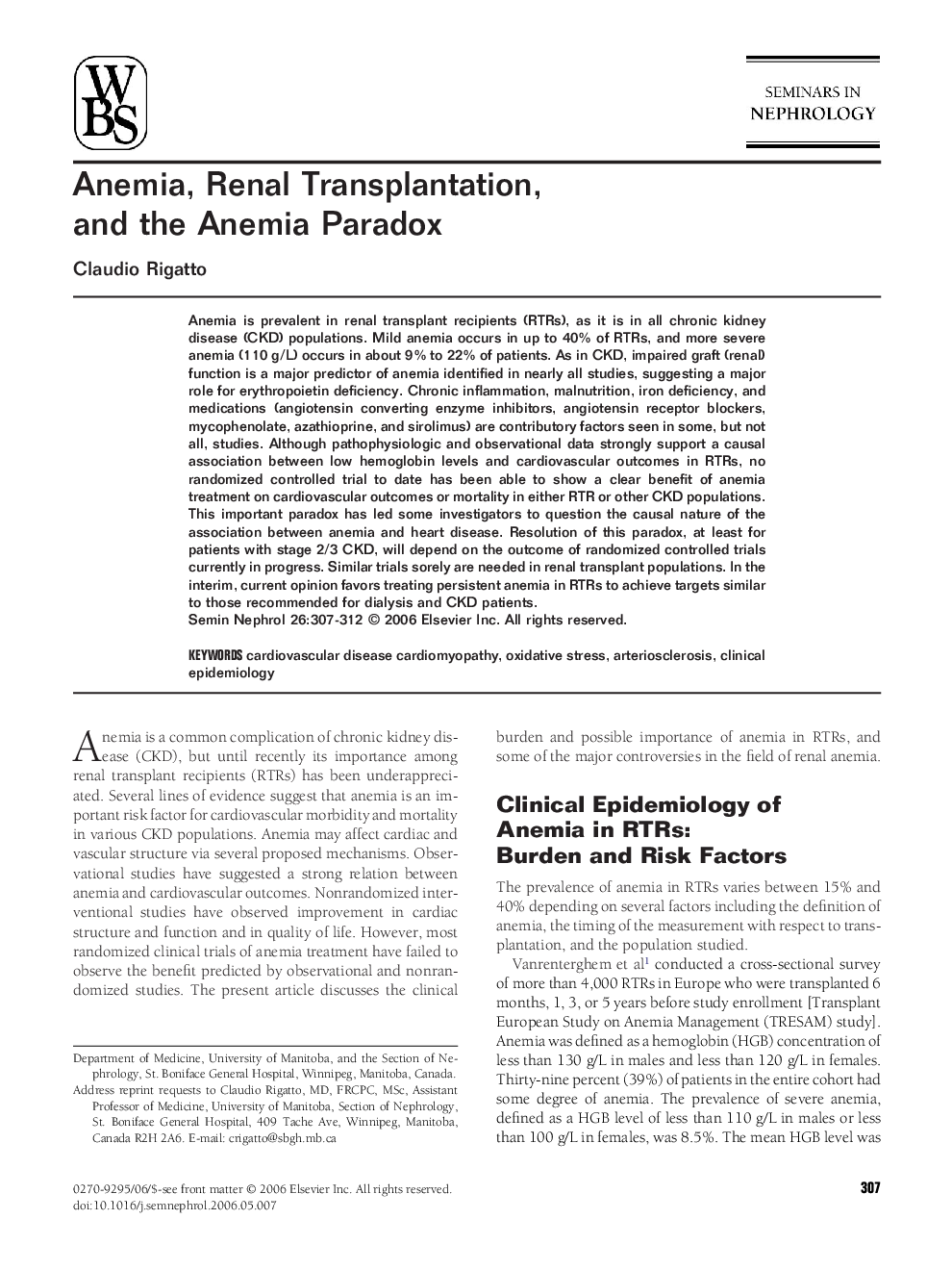| Article ID | Journal | Published Year | Pages | File Type |
|---|---|---|---|---|
| 3897366 | Seminars in Nephrology | 2006 | 6 Pages |
Anemia is prevalent in renal transplant recipients (RTRs), as it is in all chronic kidney disease (CKD) populations. Mild anemia occurs in up to 40% of RTRs, and more severe anemia (110 g/L) occurs in about 9% to 22% of patients. As in CKD, impaired graft (renal) function is a major predictor of anemia identified in nearly all studies, suggesting a major role for erythropoietin deficiency. Chronic inflammation, malnutrition, iron deficiency, and medications (angiotensin converting enzyme inhibitors, angiotensin receptor blockers, mycophenolate, azathioprine, and sirolimus) are contributory factors seen in some, but not all, studies. Although pathophysiologic and observational data strongly support a causal association between low hemoglobin levels and cardiovascular outcomes in RTRs, no randomized controlled trial to date has been able to show a clear benefit of anemia treatment on cardiovascular outcomes or mortality in either RTR or other CKD populations. This important paradox has led some investigators to question the causal nature of the association between anemia and heart disease. Resolution of this paradox, at least for patients with stage 2/3 CKD, will depend on the outcome of randomized controlled trials currently in progress. Similar trials sorely are needed in renal transplant populations. In the interim, current opinion favors treating persistent anemia in RTRs to achieve targets similar to those recommended for dialysis and CKD patients.
